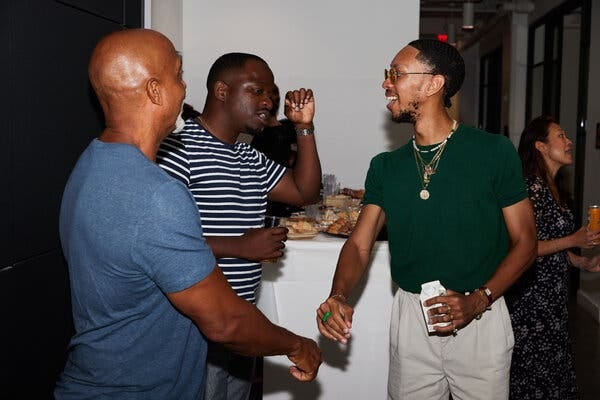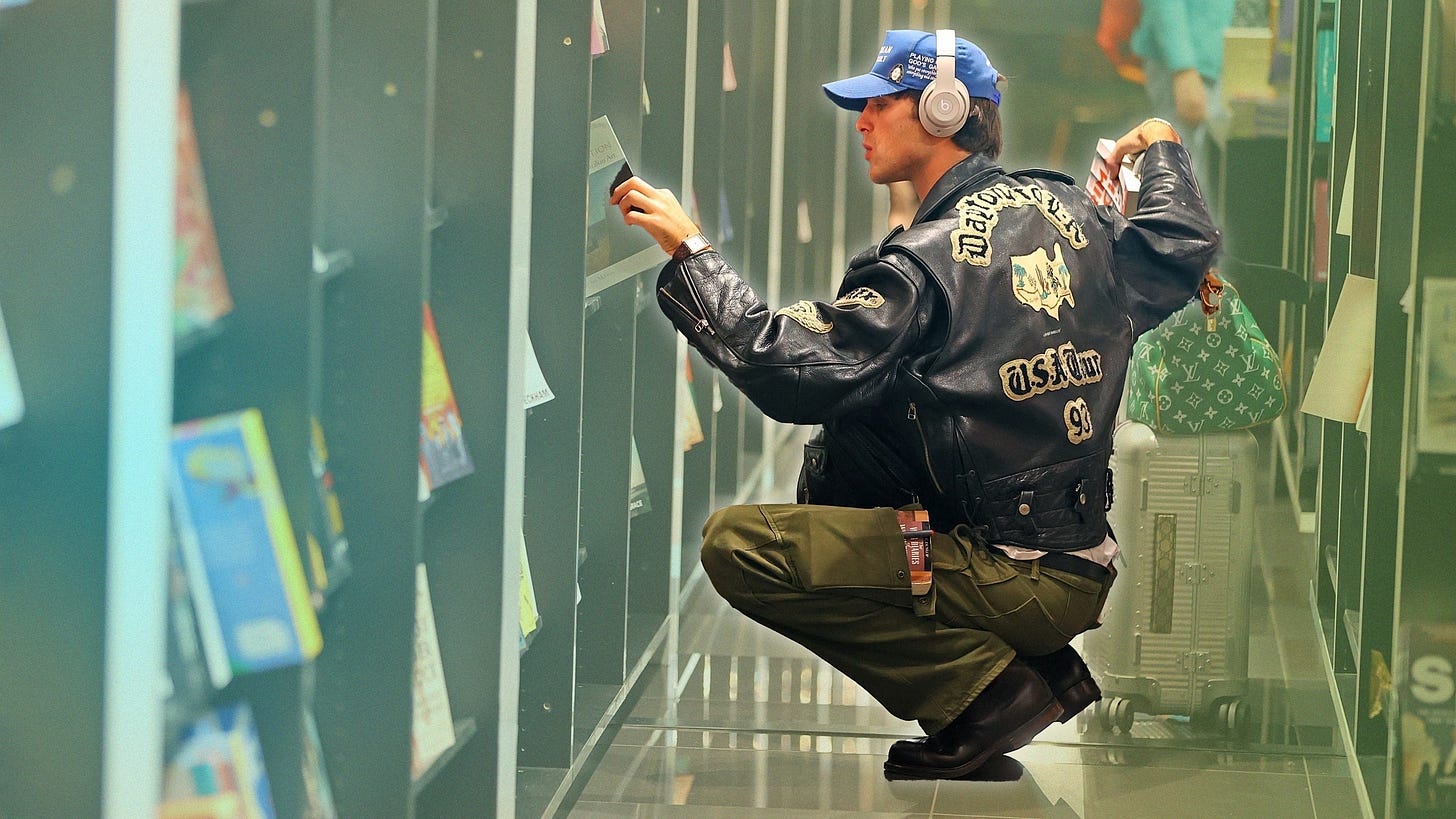Welcome back to the Next Big Think, where we explore the subtle yet profound shifts shaping our society and the market. Today, we delve into two fascinating trends that reflect our evolving cultural and economic landscape, offering insights for marketers poised at the edge of innovation and inclusion.
💡Insight
1. The Seductive Hush of Quiet Luxury
What is it?
Quiet luxury, a trend that entered the cultural zeitgeist last year (e.g., redefining opulence through understated goods), is expanding its influence into experiential and membership services. We call it quiet because these experiences aren’t in your face; they are purposely happening behind closed doors where people can feel comfortable indulging in their preferences. This shift towards quiet is a response to growing class consciousness and the desire for more meaningful status forms among the affluent and young alike.
For example:
➡️ Rise of hyper-focused membership clubs
Pre-pandemic membership clubs have been growing steadily for nearly a decade; now, they are back with more distinctive hooks and higher cost points (e.g., Aman, ZeroBond in NYC).
What we are watching closely is where the community meets a particular passion. For example, WAREHOUSE is a motorclub in Utah that offers an unparalleled community for automotive enthusiasts who want to store and race their fast cars together. Members gain access to a meticulously designed storage facility that caters to the unique needs of their vehicles while also enjoying exclusive gatherings, track days, and off-road adventures like never before.
Let’s talk about luxury watch clubs; we’ve seen a massive uptick in these clubs and watches as an indicator of lifestyle and values, especially among Gen Z and Millennials. Sotheby’s estimated 30% of its watch sales last year were to buyers aged 30 and under. GQ labeled joining a watch club as a power move, and new watch clubs are emerging around inclusivity, diversity, and shared community interest.
Complecto held a meet-up at the Citizen Watch America offices in the Empire State Building in New York City last September. Credit: Complecto
➡️ ‘Nothing is off the table’ concierge
In the world of luxury, the ultimate get is to hear yes to all your wishes. Tickets to the Oscars, a box next to Taylor Swift at the Chief’s game - your desire is our command. And now, with Myriad, it is all possible, a marketplace of luxury services for Ultra-High-Net-Worth (UHNW) individuals and families. According to Myriad, the richest 300,000 people spend $1.3 million each on their lifestyle – but still lack access to what they want.
Founder and CEO Rey Flemings.
“Myria essentially acts as a privileged little black book, connecting its members with vendors and experiences so exclusive that they are beyond the reach of ordinary people. For example, it can arrange stays in off-market mansions in Italy, front-row seats at sports events, or coveted tables at the most in-demand restaurants, sparing members the hassle of dealing with regular platforms like Airbnb or StubHub.”
What does the data say?
Our findings indicate a significant portion of young Americans, with 75% of Gen Z and Millennials, report experiencing classism in their daily lives, and 81% view ‘wealth inequity’ as a pressing national issue. This backdrop has fueled the rise of quiet luxury.
Concurrently, there's a notable trend among these young groups towards indulgence, motivated by a desire for personal joy or a sense of belonging:
A considerable 70% of Gen Z believe they've earned the right to make more lavish purchases after recent challenges — “I deserve to treat myself to more expensive purchases after surviving the last few years”(compared to Millennials at 66%, Gen X at 55%, and Boomers at 43%).
In 2023, 75% of Gen Z and 68% of Millennials reported splurging on something, compared to 53% of Gen X and 34% of Boomers.
Why should marketers care?
Quiet luxury signifies a shift towards exclusivity that doesn't scream for attention but instead whispers value to those in the know, especially in the context of sub-cultures. For marketers, this trend presents an opportunity to innovate in offering exclusive, high-quality experiences that resonate with a desire for subtlety and significance. Emulating the essence of luxury trends (vs. the actual products or services) can democratize and differentiate your brand, making it a vanguard of accessibility and desirability.
💡 Insight
2. The Intellectual Accessory: Why Books are Making a Stylish Return
What is it? In an era dominated by digital technology, books, bookstores, and libraries are making a surprising comeback as cultural statements, youth spaces, and badges of intellect. This trend parallels Gen Z’s obsession with classical music.
The resurgence of book culture is seen in the following ways:
The reemergence of bookshelf wealth- being crowned at the 2024 design trend, #bookshelfwealth has racked up 3.8 billion TikTok views.
You might have heard of shopping hauls, but now there are 656K #Bookhauls on TikTok.
This revival counters concerns over dwindling attention spans and a hunger for deep, immersive experiences.
What does the data say?
This revival counters concerns over dwindling attention spans and a hunger for deep, analog, and offline experiences.
According to our recent annual Ford Trends 2024 study:
We found over one in four U.S. adults (28%) are prioritizing digital detoxing (spending a period of time away from digital devices).
Over half of Gen Z and Millennials say they would have a device-free day to live in the moment (53%, 51%) and to improve their mental health (53%, 51%).
According to IBIS, the book industry revenue is expected to rise at a CAGR of 3.0% to $39.8 billion in 2029 (34.3 billion in 2024).
Why should marketers care?
On a personal note, I’m thrilled by this trend. Anything that gets people out of scrolling culture and into deep-thinking culture makes me hopeful for society's future well-being.
Overall this trend is a testament to the enduring power of narrative and the tangible in an increasingly ephemeral world. Books as a trend also suggest a market for products and services that offer depth, tradition, and a respite from the digital onslaught.
Summary: The quiet allure of luxury and the intellectual charm of book culture are more than fleeting trends; they are indicators of deeper societal shifts towards subtlety, depth, and meaningful experiences. For marketers, these insights are observations and opportunities to forge connections that resonate more personally and profoundly. As we navigate these currents, the challenge and opportunity lie in adapting, innovating, and ultimately resonating with the evolving consumer psyche.
3 Links
Curiosity is contagious; if you like this newsletter, please share it!!
Penned by Libby Rodney and Abbey Lunney, founders of the Thought Leadership Group at The Harris Poll. To learn more about the Thought Leadership Practice, just contact one of us or find out more here.










